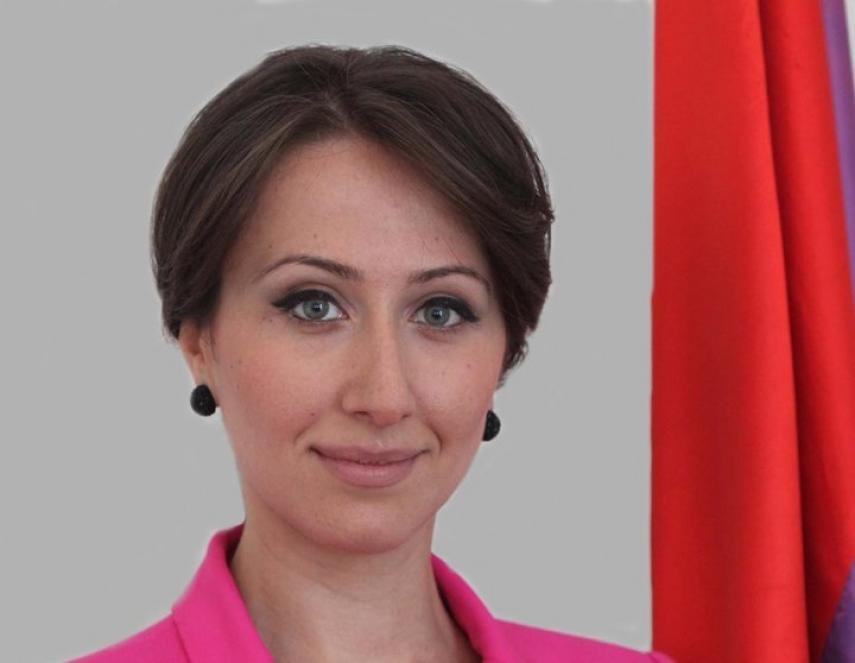NON-GOVERNMENTAL ORGANIZATION
Biased observers may be deprived of the right to observe

Interview with Tatevik Ohanyan, member of the RA Central Electoral Commission
What is the aim of the observation mission?
The aim of the observation mission is collection of reliable information about the electoral process and compilation of independent conclusions based on that information. During the elections the observation missions are carried out by the observers based on the principles of impartiality, neutrality and not interfering with the electoral process. The international organizations, accredited diplomatic and consular representations as well as those local and international NGOs the statutory objectives of which include the protection of human rights and issues related to democracy have the right to carry out observation mission in Armenia.
How do the international observation missions register and monitor the elections?
The international organizations, diplomatic and consular representations accredited in Armenia as well as the international NGOs can carry out observation mission only in case of having the relevant invitation. According to the order proscribed by the Election Code only RA President, NA President, Prime Minister and the Central Electoral Commission have the authority to send an invitation.
How many organizations and observers are registered in the CEC at the moment?
An invitation was sent to OSCE Office for Democratic Institutions and Human Rights. OSCE has established an office in Armenia and at present there are 39 CEC certified observers from OSCE ODIHR . Another invitation was sent to PACE, but it has not been certified yet.
Presently, there are 15 NGOs from local organizations, which are CEC certified and 12.778 observers on the whole.
Have there been rejections?
The registration of 4 NGOs has been rejected currently. In the cases of three of them the statutory objectives of the company did not include the issues concerning human rights and democracy. And the fourth NGO attached the regulation of another organization and submitted the documents to CEC.
Concerns have been voiced that the NGOs or the observers which carry out observation mission are sometimes biased and are directed by this or that political party. How does the CEC control this process?
As I already mentioned the main aim of the observation mission is providing an impartial conclusion that is free from assessments. The Election Code clearly proscribes that the organizations which carry out observation mission, should not support this or that political power and should not demonstrate impartiality.
Generally speaking, I think that we can achieve this by means of the development of electoral culture, legal consciousness of the organizations carrying out observation mission and the appreciation of the main aim of their mission.
What accountability is prescribed by the Election Code for the observer who is biased?
Those NGOs or observers, that support candidates, parties, party alliances may be deprived of the right to carry out observation mission by the CEC. However every case should be observed separately, and naturally CEC will make reasonable decisions.
What rights does the observer have in the polling station according to the new Election Code?
The Election Code grants the observers, proxies, and the media representatives with a wide range of opportunities to control the entire electoral process. The observer can be present at the sessions of the electoral commission, get acquainted with the whole information that masters the electoral commission, electoral documents, besides he or she can observe the process of printing, transporting and storing the ballots. On the day of the election he or she can freely move in the voting room, observe the process of voting and the process of summarizing the results of the voting. The observer can also make suggestions to the members of local electoral commission, but cannot take part to the process of making LEC decisions.
The examination of the observers, which CEC carries out, is an innovation. The aim is that the observers have legal knowledge about the electoral process, so that they get acquainted with the Electoral Code and the Legislation and be able to compile and present independent and accurate information. Up to 17 days before the election day the organization can submit the application to take the examination, as a result of which they can be provided with the certificates of carrying out the observation mission.
The new Election Code allows to film the whole process of voting, except from those scenes which violate the secrecy of voting. What is the purpose of not publishing the signed list of the voters?
The secrecy of voting is a broad concept, it may refer to both the secrecy of the private information of the citizen and the vote of the citizen in the ballot. I think that the CEC will explain it and will emphasis all those principles.

